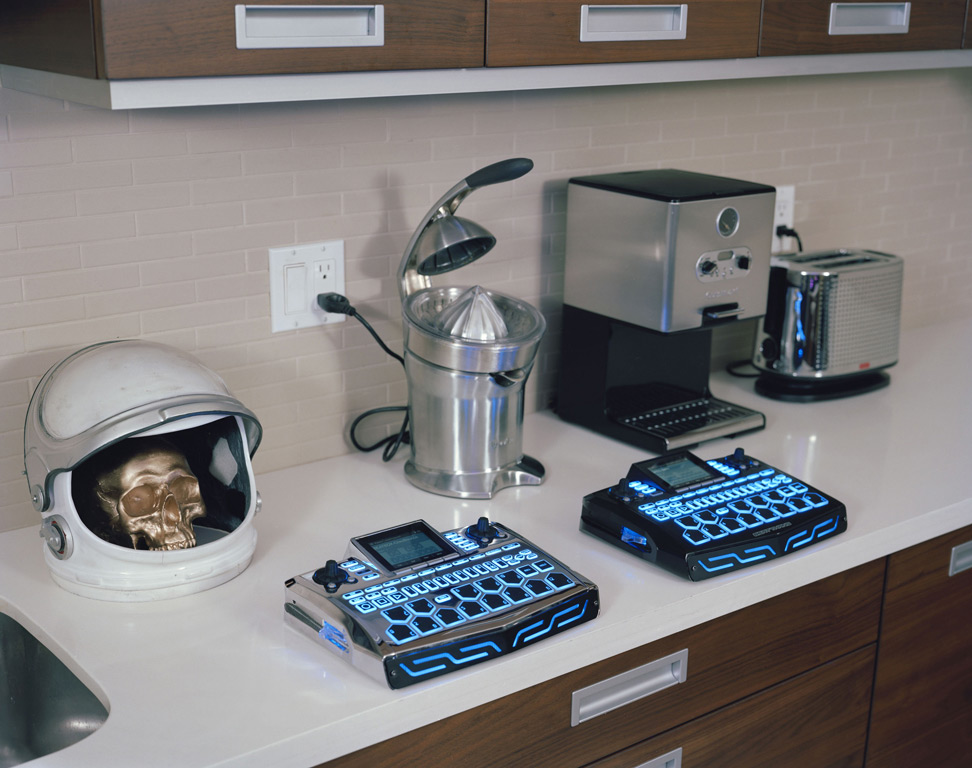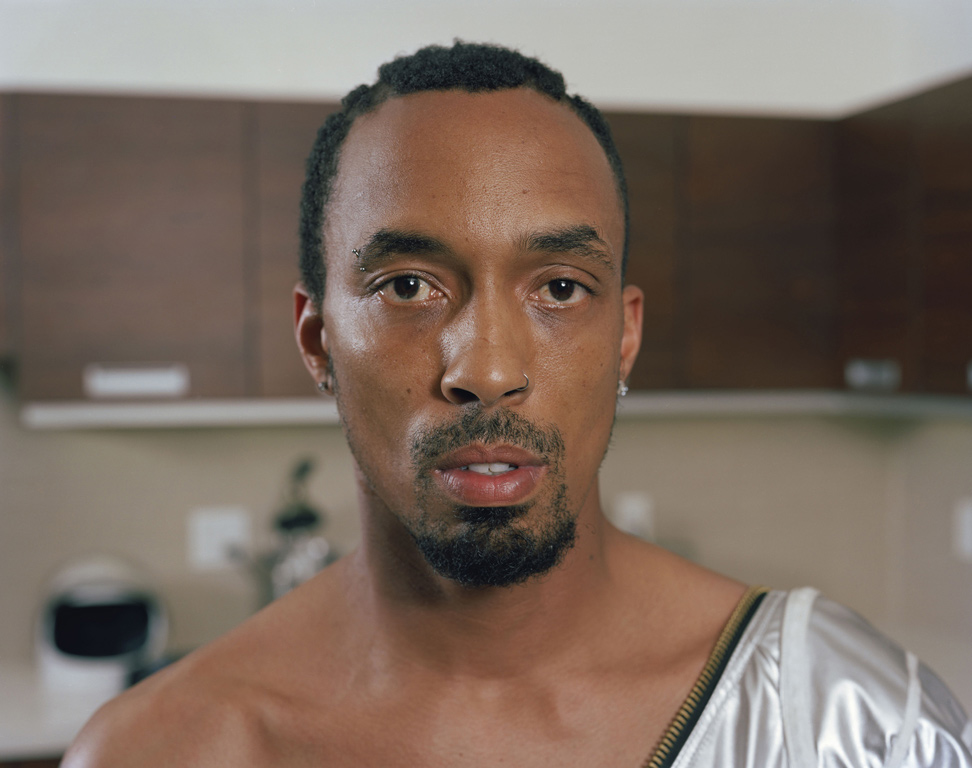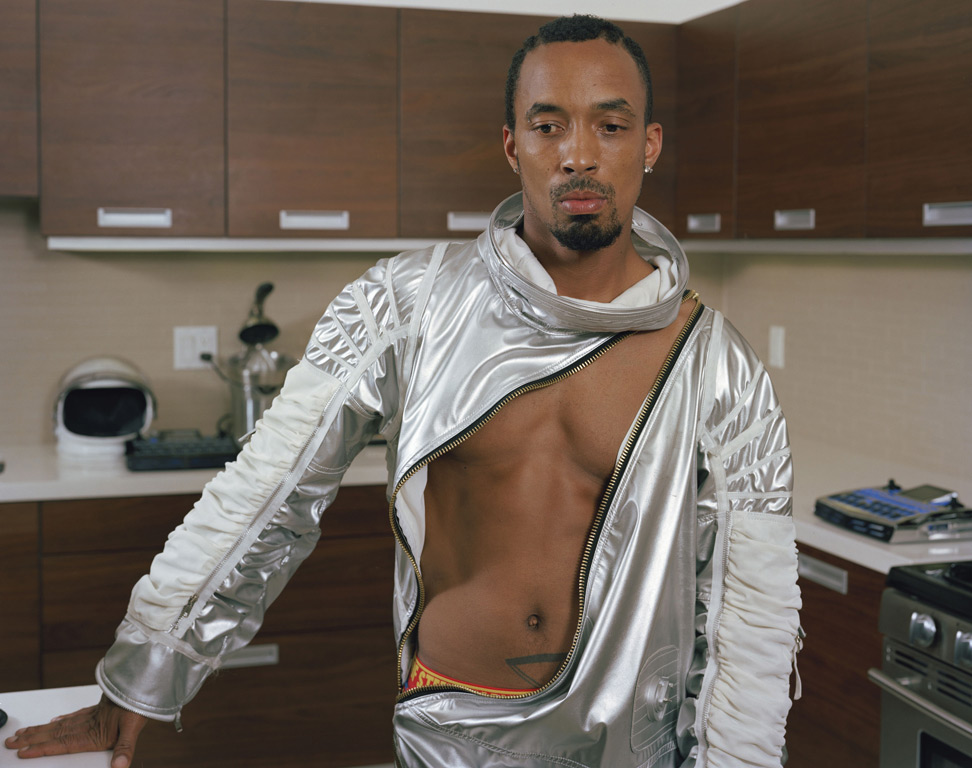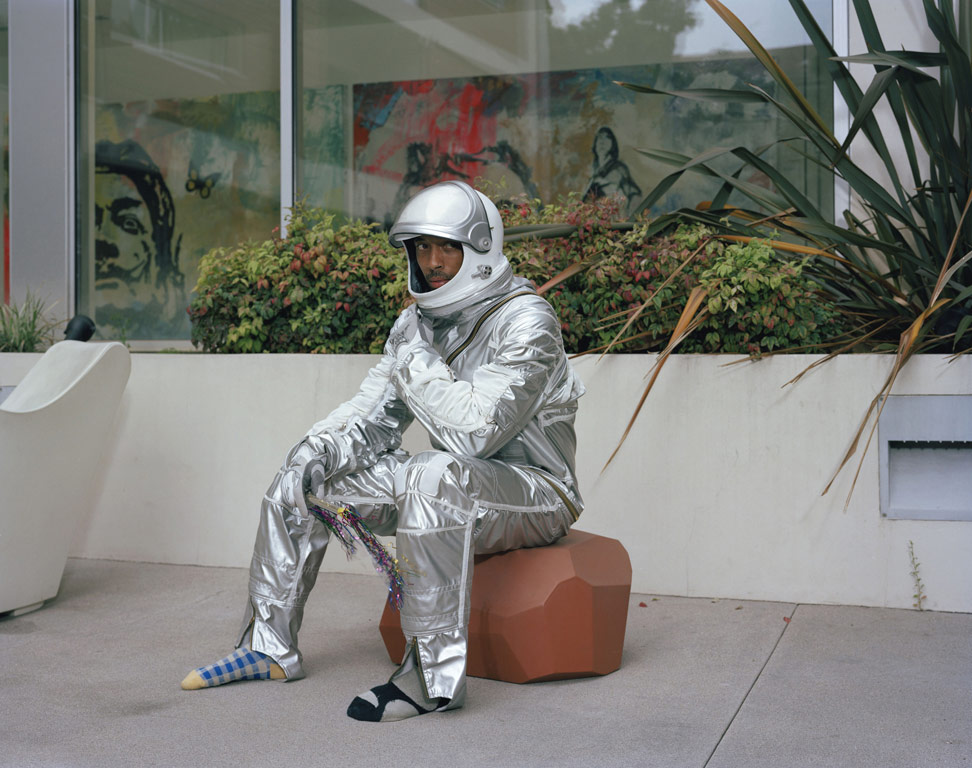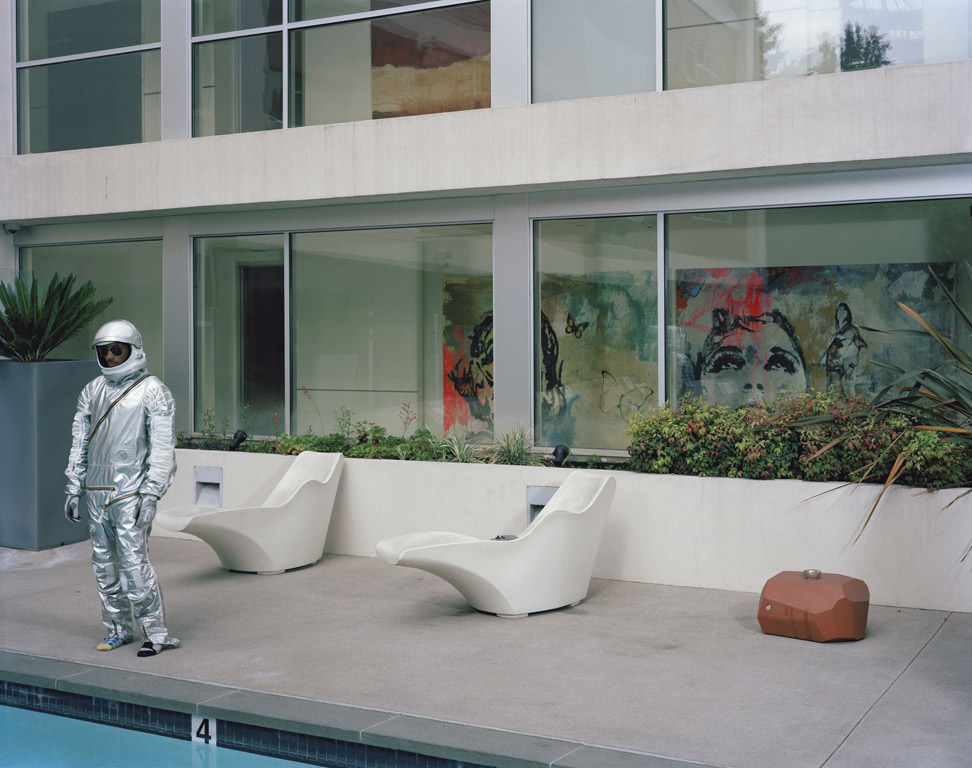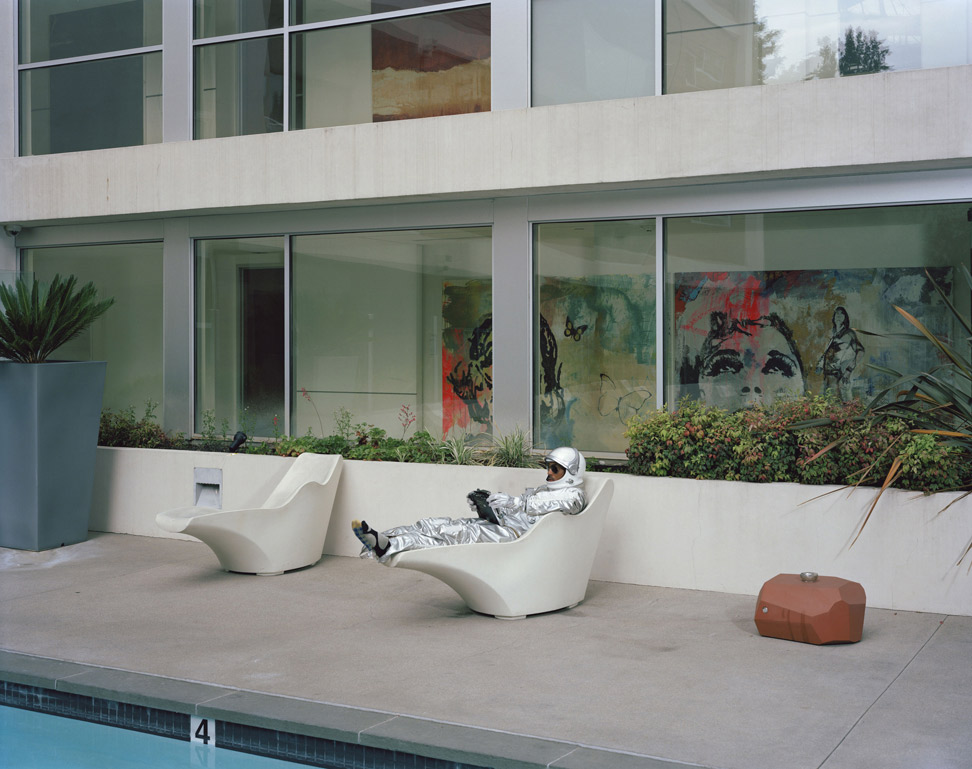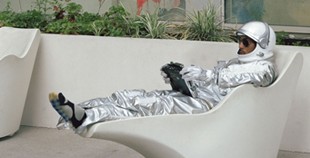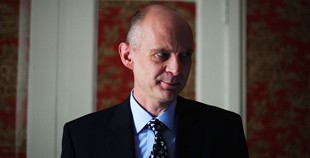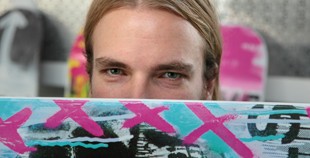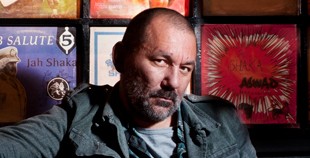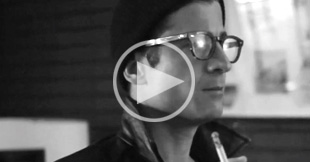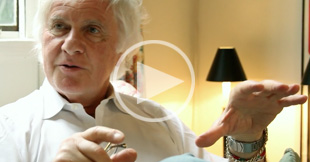
The Prolific Music Producer On Inventing The “Beat Thang,” When Art Left Pop, and His Next Big Launch
Interviewed by Clyde Mason / Photographed by Dana Lixenberg
On a busy Hollywood boulevard sits a non-descript doorway to music super-producer, Dallas Austin’s lair. Once you ascend the stairs to his home studio you see that it’s split into two worlds. A creative lab in one direction and a slick, modern bedroom, the size of many people’s homes, in the other direction. In the lab you can find Dallas writing songs, picking out pieces for his clothing line, discussing product launches, or just DJing for those individuals lucky enough to gain access to this world. The bedroom side is clean, open, uncluttered, perfect for slipping away and leaving the noise of Hollywood behind, or conducting an interview. As I see all these different sides of an artist, no bullshit, just creative fury, a question comes to mind. Can Dallas Austin save us from ourselves? Let’s pause and come back to that question. First, who is Dallas Austin?
Dallas grew up in Atlanta, Georgia where he dropped out of high school at seventeen, the same year music super-producer L.A. Reid, now of American Idol fame, signed him to LaFace Records. Austin went on to produce eight of Boyz II Men’s songs from their multiplatinum debut album, COOLEYHIGHHARMONY. Austin’s friends from his local skating rink in Atlanta, later known to the world as TLC, hired him to produce many of their hits, including the song that broke them into the mainstream, “Ain’t too Proud to Beg,” for which he received a Grammy Nomination at age twenty-two. Madonna, Michael Jackson––the list of artists that he has collaborated with is lengthy and consistently impressive. After making his mark in music, Austin branched out into fashion design, community outreach, and product design. So why has it been so long since we’ve heard his name? Why isn’t he popping up in Rihanna videos or in the studio with Kanye West? And what does his absence in the upper echelons of the contemporary music scene tell us about where we are as a culture? Maybe that he is one of the few remaining examples of a pure artist still left in our culture of cool.
There is a soullessness pervading much of our pop music today and Dallas feels that as a culture we’ve forgotten that music is not just the emotion it makes us feel, it’s also art. “The art left music when they started asking America who should be the star and taking that idea seriously. A lot of times the star is the person with the mystique behind them, but you don’t know who they are,” Austin says, sitting in his Hollywood home/studio, reflecting on the version of music being peddled in 2011. In terms of his approach to identifying the next great artist, Austin says, “When I work with an artist, I ask, Who are they? What are they? What are they going to be? Where are they going to fit into society? After you answer those questions, then you have a real artist.” The artists that he’s worked with have always allowed him to mix a variety of different elements to create a thing that is both brand new and familiar. These elements can be dance styles, music styles, fashion trends, personality types, etcetera, but they all coalesce into a kind of special Austin gumbo. Austin has no faith in the one-dimensional performer, and references iconic artists to make his point. “Joni Mitchell will tell you the best records just happened to you. You catch that emotion and then you put it out.” That’s fine and good, but even if one thinks they have just recorded history’s greatest ballad, how do they know if they’re right? Austin clarifies the point: “If you’re Picasso, you’re not going to ask anybody what colors to use to paint. Then when you paint this masterpiece people will go, ‘fuck, how did he do that?’ That’s the secret to all art. ‘How did he do that?’ If you see Zach Posen’s dresses you go, ‘how did he do that?’ If you listen to a Teddy Riley record you go, ‘how did he get that sound?’” Assembly line, cookie cutter music lacks mystery because everyone thinks they have the answer and that they know best, when in fact it should all come back to putting trust in the artist. Dallas has made a career out of trusting the artist and himself, so why has the industry defaulted to executive group-think?
Being a 360-degree artist, creative in every direction, Austin has always been interested in exploration. “If you can get outside of this place, you can see how insignificant your problems are.” The place Austin refers to might be L.A., America, one’s mind, or the planet earth. Changing perspectives through physical and metaphysical travel has been an integral part of Austin’s development as an artist and a person.
Even though he keeps a home in L.A., Austin still spends the majority of his time in Atlanta. “I leave my soul in Atlanta,” he says. “Atlanta is a country neighborhood. I might as well have a porch on my studio.” That spirit of neighborhood and creating music with your adopted family of musicians and friends infused Austin’s perception of how great music and art should be made. Austin realized that there was a world beyond Atlanta and he started to make trips out of Atlanta before ever setting foot outside of Georgia’s boundaries. London and its music scene fascinated Austin early on in his career. “London was the biggest foreign influence on me. When I was working on music for TLC I would take guitars from Depeche Mode or Duran Duran. There are so many different elements of U.K. music and there are so many different types of people that you can draw from,” he says.
The first place Austin dreamed about travelling to, outer-space, has recently gone from being a childhood fantasy to a real possibility. “It came from Buck Rogers. As a kid I was like, ‘I can’t wait to live in this time’. I was always for some reason a space-head. I remember when me and Chili [from TLC] were together, I would always say whenever there is a chance to go to outer space, I’m going. I could get hit by a bus tomorrow, at least if I go up there I will be a part of something that the average person is not going to be able to see,” Austin states. Many of us have dreamed of travelling to outer space, but few of us have done more than dream. Austin put his space travel dream out in the ether to see what came back. “I was in L.A. at a friend’s house and he had these Richard Branson books. I remember thinking, ‘how do I get to space’. So I just tweeted that I’m going to be able to go to space by 2013 thanks to Richard Branson,” Austin recalls. But he didn’t say he was actually going–just that the possibility exists. But, that was enough. His tweet started popping up in the press, and the digital word was out. Four days later, out of the blue, Austin received an email from Virgin Galactica saying, “Dallas-contact us.” When Austin called them back they asked if he had signed up for the Virgin Galactica trip, and he said no. They then asked if he would like to go, and would he like to meet Richard Branson at a promotional event for his Virgin space program. Branson would be flying in a plane next to one of his Virgin spaceships in San Francisco. Austin would join Branson on the promotional flight, as the real space mission is still a few years away. While with Branson he met legendary astronaut Buzz Aldrin, who told him, “Dallas, you have to realize that on our mission we weren’t supposed to get out of the spaceship, we were just supposed to land on the moon. What made me the second man on the moon was that Neil jumped out first,” Austin recalled. If you want to win history’s lottery, you have to buy a ticket, take a risk; that’s what Aldrin believed, and that is a mantra that Austin has lived by.
The duties of those living a rich life are not lost on this pop-music icon. Austin’s godfather, Quincy Jones, gave him a bit of advice on the importance of giving back: “One of the things that Quincy always taught me is to expand yourself and make sure you put it back into ‘the environment’ [the community/culture] because, if not, you are going to kill off all the growth of what spawned all this [art].” Wanting to give back to his hometown Austin started by thinking back to what he felt was missing from his education as a teenager in Atlanta. “One thing I always wished I had in school was more music. They were taking band programs out of school because kids weren’t using them, but that’s because they’re not associating the flute with musicians that they like. We can put music into schools and still have kids realize that math and English do [relate] with this beat that I’m doing. So I started putting these music studios into schools and I’m on to my tenth school now. Just to see the response and see how many kids from the program go on to college is it.” Austin’s commitment to the next generation happens on a macro and a micro scale, however. “I have sat down with people to help them go through their contracts and make sure they don’t do through the fires that I went through.” Dallas does everything he can to make sure that the next Joni Mitchell or Stevie Wonder has a clear path to realizing great art. Now, we just need to listen to him.
